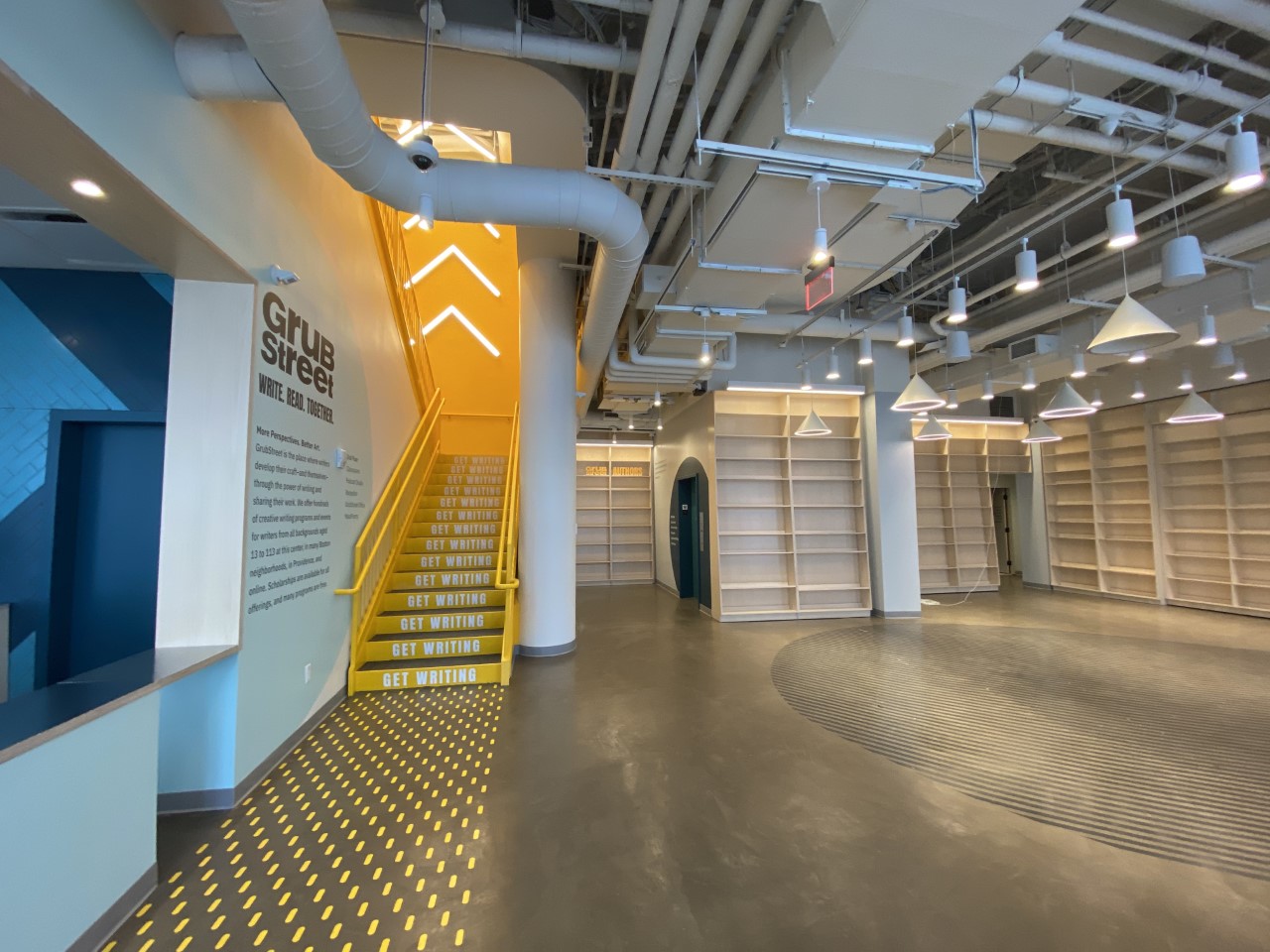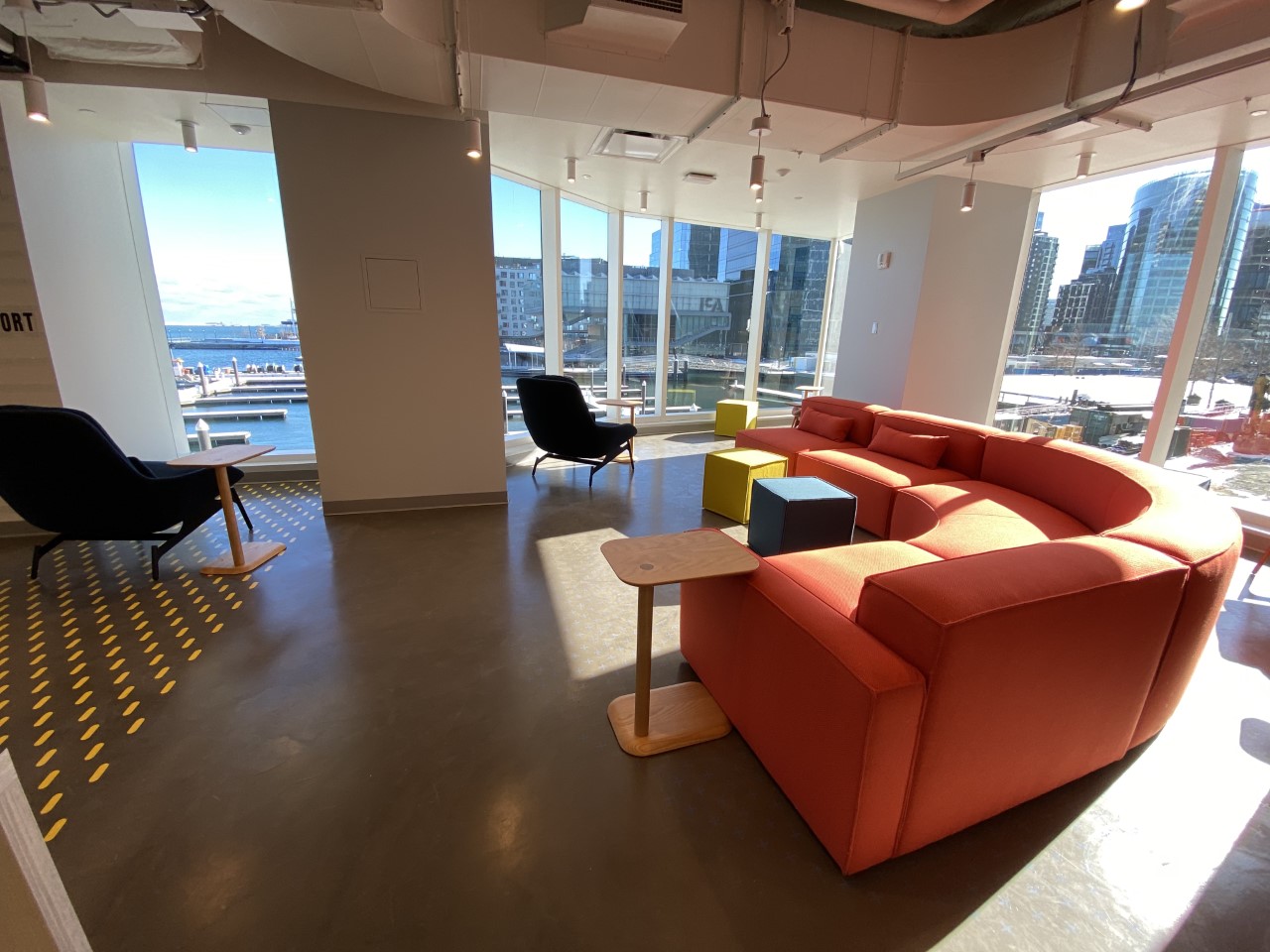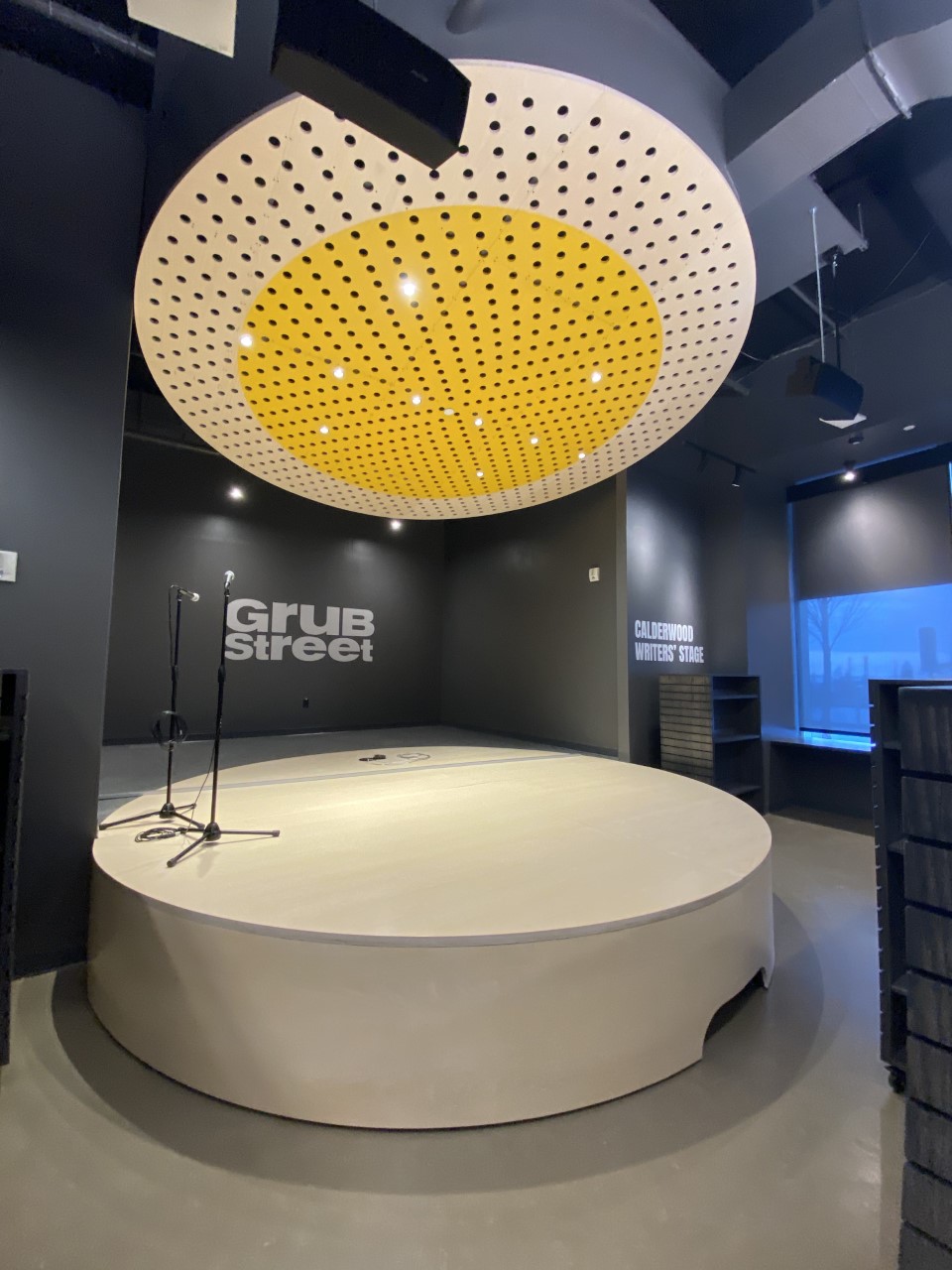GrubStreet
OVERVIEW
GrubStreet is the largest creative writing center in the country. Currently operating remotely, GrubStreet is in transition to a new space that will feature expanded classroom and community space, a café, bookstore, podcast studio and performance space in Boston’s Seaport District. GrubStreet runs extensive creative writing programs for people of all ages, abilities, and backgrounds. In addition to teaching in the Seaport and online, GrubStreet partners with the Boston Public Library branches, Brookview House (a homeless shelter for women and children), Boston Public Schools and others to reduce barriers and make creative writing education accessible in under-resourced communities. GrubStreet also organizes an annual writing conference called The Muse and the Marketplace, hosts the Boston Writers of Color Group, and runs several fellowship programs for emerging writers and Black writers and educators.

CONTEXT
During his tenure as Boston’s mayor from 1993-2014, Thomas Menino created numerous initiatives to convert an historic industrial waterfront in South Boston into a vibrant new neighborhood. Development in the area began in 1991 when it was announced that the John Joseph Moakley United States Courthouse would move there from downtown, and when it opened seven years later it was one of a few buildings in a sea of parking lots. Three hotels were constructed in 1998, 2006, and 2008 respectively, to support the new Boston Convention & Exhibition Center which opened in the area in 2004. In 2000 Menino awarded a coveted waterfront site to the Institute of Contemporary Art which opened its new facility in 2006. And in 2005 developer Joe Fallon purchased the 21-acre Fan Pier where GrubStreet will be moving in 2021.
In his final inaugural address, Mayor Menino rebranded this emerging neighborhood as the city’s “Innovation District.” To realize this vision, City Hall put together a package of tax breaks and other incentives to lure development to the area. In return for creating space for technology and biotech firms, the City brokered agreements with developers to provide space inside their buildings at a reduced rate to cultural organizations and non-profits that could support the new community. Buildings constructed on the waterfront had additional requirements to provide spaces for public accommodation because of their need to obtain a Chapter 91 license.
Around 2017 the downtown office building that housed GrubStreet's headquarters was sold to a developer, so the organization sought to find a new space in the city that could continue to be accessible to people in its community. Spaces that were ADA accessible, had access to public transportation, and were affordable were hard to come by, so the organization decided to apply when the City of Boston put out a request for proposals for a space under construction at 50 Liberty Ave.
In 2018, the City of Boston announced that four groups would be finalists to take over up to 13,000 square feet of space that was being created on the first and second floors of a new condo building on the waterfront. GrubStreet won the proposal and began raising funds for the build-out of the space as well as staffing and money to increase access and remove barriers. GrubStreet planned to complete construction by the summer of 2020, but value engineering and the pandemic slowed the process down. After their lease on their existing space expired in 2020, the organization decided against renting temporary space until their new space in the Seaport was developed.

PARTNERS
Partners that have historically worked with GrubStreet on offering accessible programming to their audiences include the Boston Public Library (including branches in Mattapan, E Boston, Dorchester), and Brookview House (a homeless shelter for women and children), and Boston Public Schools. GrubStreet has also developed programming with local bookstores including Porter Square Books (which will open a new branch at the headquarters in the Seaport), Harvard Bookstore, and Brookline Booksmith. Mass Poetry will be the first artist group in residence at the new space.
FUNDING
Funding to support the build-out of their new space has come from major foundations, including the Calderwood Charitable Trust Foundation and the Barr Foundation as well as numerous individual donors and the Massachusetts Cultural Facilities Fund. The developer also provided $25 per square foot ($325,000), and will lease the 13,000 square foot space for $1/year for the next 35 years with options to renew.
PROCESS
GrubStreet was founded in 1997 by Eve Bridburg with an eye toward creating rigorous and supportive creative writing classes outside of a university setting. Eve facilitated the program until 2001, at which point she worked with 10+ volunteers, including the future Executive Director (and present Artistic Director), Christopher Castellani, to turn the program into a not-for-profit 501(c)(3) organization. Eve stayed on as a member of the board but transitioned to working in publishing until 2010 when Eve was hired as GrubStreet’s Executive Director.
GrubStreet has moved multiple times over the course of its history, starting in Eve’s home, to an old toilet-paper factory in Somerville, to a couple of locations in Boston. By the time that their current location was sold to a developer, they had outgrown their existing space. In 2018 they were awarded indoor public space in the Seaport that had been set aside as a condition of a Chapter 91 waterways license. Original estimates that were approved for construction totaled $1.2 million. However, once the estimates were confirmed with architects and sound engineers, the costs expanded to $4 million. Eventually, GrubStreet set an $8 million goal for the campaign, which includes programming expansion and increased scholarships and free programs for students of all ages, incomes, and backgrounds. As they finish the fit-out, the organization estimates it will spend a total of $5.8 million on the construction aspect, with reserve funds and contingency that were in the original budget now allocated to building costs. The remainder of the $8 million budget will be dedicated to programming, launch, and expanded accessibility. The organization has raised $7.1 million as of the end of March 2021 and is poised to begin the public/community phase of the campaign to raise the remaining $900,000.
GrubStreet also overcame the challenges of negotiating a lease with the developer. Although the City of Boston created the conditions for the space to be allocated to a cultural organization, little assistance was offered during the negotiation process. Originally a typical commercial lease was presented to GrubStreet that included terms which could place limits on their operations. GrubStreet was able to work with counterparts at the City of Boston, pro bono lawyers and environmental consultants to untangle the vague requirements for State Law Chapter 91, and to negotiate a new lease that reflected the conditions of Chapter 91 that allows the public unimpeded access to the provided public space.

SUCCESSES
GrubStreet offers hundreds of writing classes each year to thousands of students (including 1500 teens), making it the largest creative writing center in the country. Innovation and a commitment to Diversity, Equity, Inclusion, and Belonging (DEIB) are what makes the organization unique.
GrubStreet program offerings come in three different formats: seminars, weekend workshops, and multi-week classes and intensives. Courses range from low, medium, or high intensity, depending on the participant’s commitment level. Programs for teens and adults are provided in Boston neighborhoods, at the GrubStreet headequarters, and now online worldwide. GrubStreet also offers numerous scholarships and fellowships, especially to support writers from historically under-resourced communities, writers of color, and Black writers.
The current revenue model is 50-50, with money raised through contributions matching what is earned through tuition and fees. Prior to its dedicated commitment to DEIB in 2014, the organization used to raise 75% of its revenue from tuition and fees, but the growth in contributions has allowed the organization to offer more free programming, scholarships and fellowships. With the new space the hope is to transition to a model that is closer to 60-40 where they will have opportunities for new earned revenue channels such as merchandise, ticket sales, bookstore profit-sharing, and corporate programs offered to organizations in the Seaport District. With construction nearing completion, the organization’s biggest success is that it was allowed to dream big and build a new center that can be an asset to all writers.